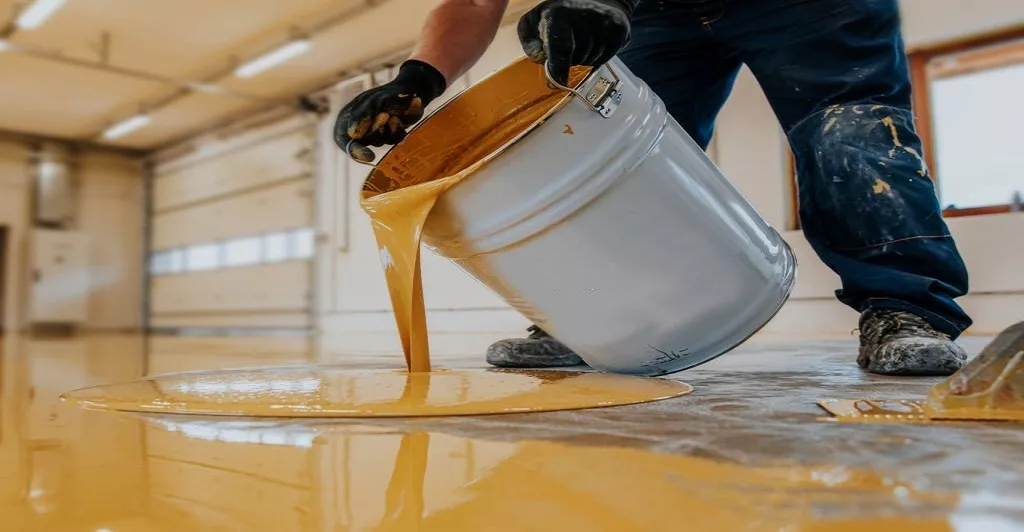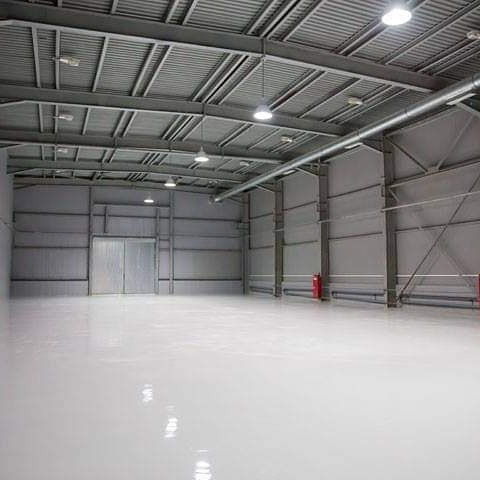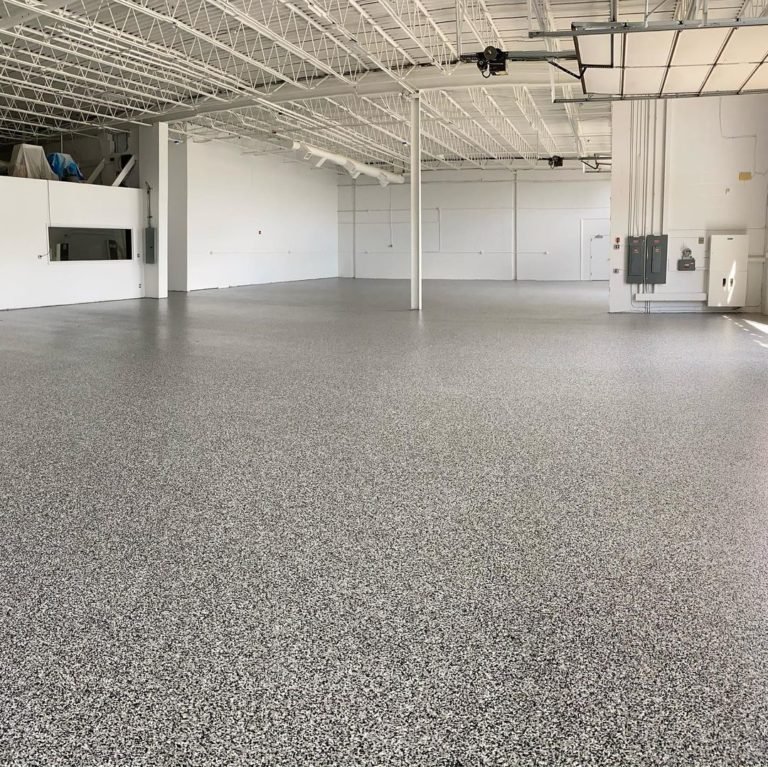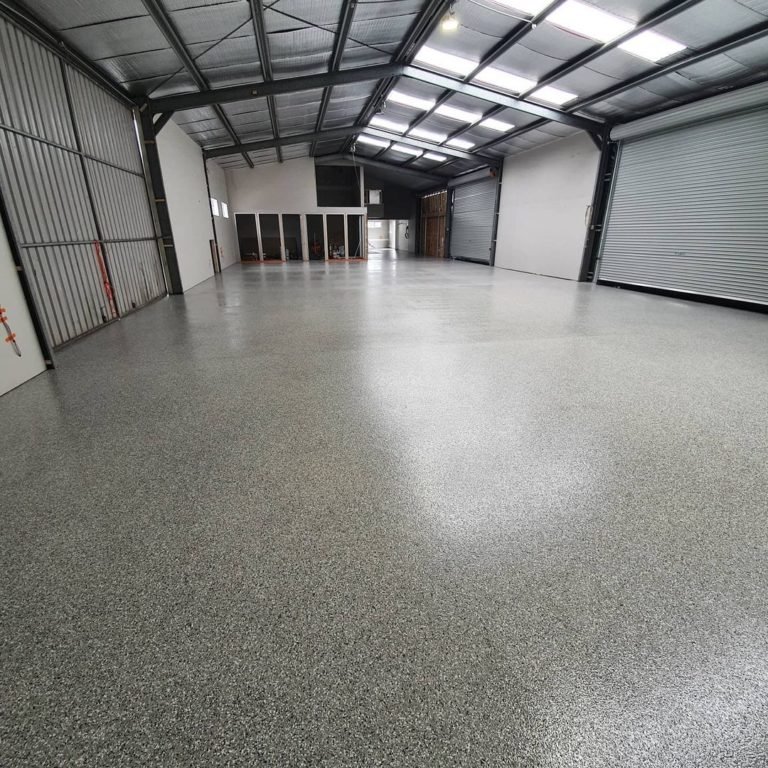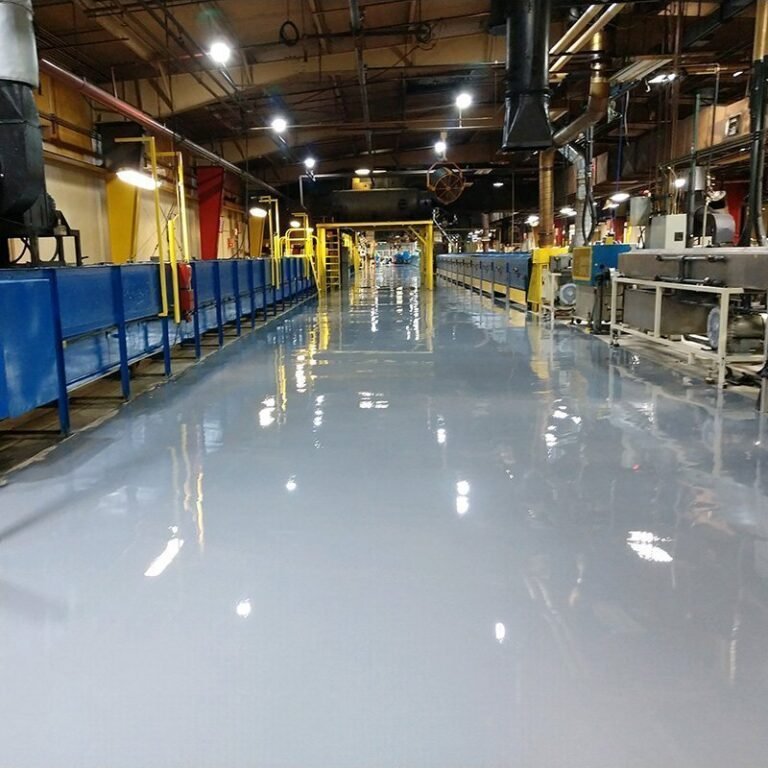Epoxy Flooring Lifespan: How Long Do Epoxy Floors Really Last?
Practical lifespan expectations, durability factors, and maintenance tips for epoxy floors across Vancouver & BC.
Epoxy flooring has a reputation for being tough, seamless, and long lasting. But how long an epoxy floor actually lasts depends heavily on where it’s installed, how it was installed, and how it’s maintained.
Below are realistic lifespan ranges for residential garages, commercial spaces, and industrial facilities in Vancouver and across BC — plus the biggest factors that shorten (or extend) the life of an epoxy system and when it makes sense to recoat instead of replace.
How long do epoxy floors last in real-world conditions?
Lifespan is not a single number. It changes with use, environment, system build, and prep quality. The table below shows typical ranges when floors are installed correctly and maintained reasonably well.
| Environment | Typical Epoxy Lifespan | What usually limits lifespan |
|---|---|---|
| Residential garages & basements | 10–20+ years | UV at door, hot-tire pickup, lack of cleaning, moisture issues. |
| Retail & commercial spaces | 5–10 years | Foot traffic, carts, cleaning chemicals, layout changes, damage at joints. |
| Warehouses & production areas | 5–10 years | Forklifts, impact, point loads, chemical spills, poor prep on older slabs. |
| Specialty spaces (labs, food plants) | 7–15+ years | Sanitation, thermal shock, standing water, chemical exposure. |
These ranges assume proper mechanical prep, moisture testing, and enough system thickness. Thin “paint-like” epoxy products installed on unprepped concrete can fail quickly — especially in wet or high-traffic environments.
What actually controls epoxy flooring lifespan?
The chemistry matters, but the biggest drivers of lifespan are surface preparation, system design, and how the floor is treated over time.
- Diamond grinding or shot-blasting to remove weak layers and open the surface.
- Moisture testing to confirm vapor drive from below the slab.
- Moisture-tolerant primers where needed (especially below-grade slabs).
- Crack repair, joint detailing, and patching before coating.
- 100% solids epoxy vs thin, water-based, or “paint” style coatings.
- Correct film thickness for traffic and load (not just “one coat”).
- Urethane or polyaspartic topcoats for abrasion resistance and UV stability.
- Texture/aggregate options where traction is needed for safety.
- Passenger vehicles vs loaded forklifts and pallet jacks.
- Static loads from racking, machinery, and lifts.
- Point impacts from dropped tools, drums, and heavy parts.
- Turning lanes where wheels scrub and accelerate wear.
- Higher moisture and humidity in coastal regions.
- Freeze-thaw cycles and road salt tracked in during winter.
- UV exposure at door thresholds and bright openings.
- Temperature swings in unheated bays and warehouses.
- Remove grit — it acts like sandpaper under tyres and wheels.
- Use compatible cleaners (pH-neutral is usually safest).
- Clean up oil and chemical spills before they sit for days.
- Plan re-topcoats in high-wear lanes before you wear through the build coat.
Epoxy lifespan in Vancouver & BC’s climate
In the Lower Mainland, moisture and tracked contaminants are often bigger threats than temperature extremes. A well-designed system for this region typically uses mechanical prep, moisture testing, and (when needed) moisture-tolerant primers as standard.
In practical terms, a properly installed garage system can last a long time — and many owners extend lifespan with planned maintenance and timely re-topcoats. If you’re comparing longevity for epoxy flooring for residential garages, prioritize moisture strategy and wear protection at turning lanes and door thresholds.
Simple maintenance habits that extend lifespan
You do not need a complicated program to get long life from epoxy flooring. The key is consistency and avoiding harsh or incompatible cleaning products.
- Dry sweep or dust mop to remove grit and debris.
- Spot clean spills, oils, and chemicals as they occur.
- Use entrance mats in garages and loading areas.
- Damp mop or auto scrub with a pH-neutral cleaner.
- Inspect high-traffic lanes for dulling or wear.
- Check joints and cracks for edge damage or movement.
- Review heavy equipment paths and turning areas.
- Plan touch-ups or re-topcoats where needed.
- Confirm cleaning products remain compatible with the system.
- Use pads/plates under jack stands and heavy feet.
- Use wheels/glides on equipment instead of dragging.
- Avoid metal shovels on textured coatings.
Recoat vs replace: when is your floor actually “done”?
A worn-looking epoxy floor is not always a failed floor. In many cases, the base system is still bonded well, and only the topcoat is worn.
- Good candidates for re-topcoat: dulling, light wear, minor scratches, no widespread peeling.
- Likely full replacement: extensive delamination, ongoing moisture issues, repeated peeling in multiple zones.
- Repair + recoat: localized failures that can be patched and blended before a new finish coat.
Can epoxy flooring really last 20 years?
Yes — especially in residential garages and light-use areas with proper prep, moisture control, and regular cleaning. Heavy industrial environments typically see shorter lifespans without planned maintenance.
What is the most common cause of early epoxy failure?
Poor prep and uncontrolled moisture. Coatings installed over smooth, dusty, contaminated, or damp concrete tend to peel early.
Does UV exposure shorten epoxy lifespan?
UV can cause yellowing and chalking in standard epoxy. In Vancouver garages, this often shows at the door threshold. A UV-stable topcoat reduces the issue dramatically.
How do I know if my epoxy floor can be recoated?
If the coating is still bonded and the issues are mainly surface wear or gloss loss, it may be a strong candidate for a new topcoat after proper sanding and cleaning.
Is epoxy the best choice for every floor?
Not always. In high-heat or aggressive wash-down zones, urethane-cement may be better. In UV-exposed areas requiring fast return to service, polyaspartic topcoats are commonly used.

